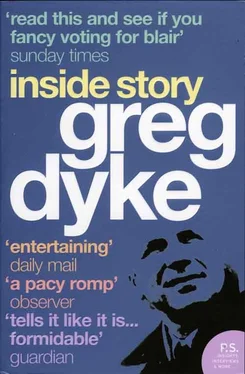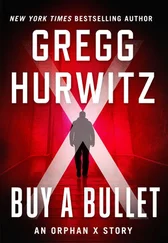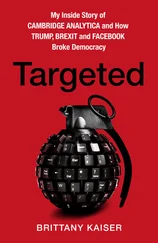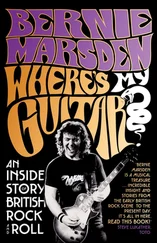In all there were five of us in the car. It was a fifteen-minute drive and no one said anything. When we got to White City and drove down towards Television Centre we found the roads outside the BBC buildings thronged with chanting staff holding up placards. The scenes were amazing. As I got out of the car people were applauding and trying to shake my hand. There were news crews everywhere trying to interview me. For a brief period of my life I suddenly found out what it was like to be an American presidential candidate or Madonna. It was frightening.
Someone thrust a megaphone into my hand and I made an impromptu speech. We were all a bit scared for our safety and Magnus and Emma tried to guide me through the crowd. We lost Andrew Harvey somewhere and didn’t see him again that day. At one stage Emma even thumped a news cameraman who was getting a bit rough; but, inch by inch, we gradually moved towards the entrance to Stage Six, the home of BBC News.
Inside the building there were people everywhere shouting and applauding. I stopped for a quick but hassled interview with Kirsty Wark, the Newsnight presenter, whom I admired a lot. I then decided to go up to the BBC News room. As I walked in people started applauding and eventually I climbed onto a desk and spoke to them all. I told them that our journalism had to be fair but not to lose their nerve, unaware that it was being broadcast live to the nation on BBC News 24. I told the staff in the newsroom, and the rest of the world live on television, that all we had been trying to do was to defend the ‘integrity and independence of the BBC’. I later discovered that this really upset Downing Street, but in truth it was exactly what the whole thing had been about. We were defending the BBC from a wholesale attack on its journalism by Alastair Campbell, a man whom some in the Labour Government are only now beginning to understand was a complete maverick and who had been given unprecedented power by Tony Blair.
I also went to visit the staff of the Today programme, on which Andrew Gilligan had worked. There was a more sombre mood amongst the Today staff.
We went quickly to others parts of the building and the response was overwhelming. I then decided it was time to go. We went outside and were surrounded yet again. Someone had written ‘We love you Greg’ on my car windscreen in lipstick, and if my driver Bill and a policeman hadn’t stopped them they would have written all over the car. We drove out with hundreds of people still cheering and waving their placards.
Eventually I got back to my office at Broadcasting House to discover that what had happened at Television Centre was not a one-off. All over the country the staff had taken to the streets to protest that their boss was leaving. In Cardiff, Glasgow, Belfast, Manchester, Newcastle, and Birmingham hundreds had walked out to protest. But it wasn’t only in the big centres. The staff of local radio stations had also left their offices. At BBC Radio Shropshire in Shrewsbury all the staff had walked out, including the presenter who was on air. He had gone outside to express solidarity, whilst rightly continuing to broadcast live to the people of Shropshire.
In the next few days more than six thousand staff replied to my e-mail wishing me luck, thanking me for what I had done during my time at the BBC, and telling me how much they would miss me. I have chosen two examples – one from a producer in the World Service, and one from News; but there were thousands like them. The first said:
Your greatest achievement was giving the kiss of life to a body of people who’d been systematically throttled, castrated and lobotomised. To leave us all very much alive and kicking, loving the BBC and respecting the role of Director General again, is a fantastic legacy.
And the second:
The only way I can come to terms with the extraordinary events of the last 48 hours is to pay testimony to the vision and energy you have brought to the BBC. Men and women, even journalists, cried today. People came together and talked about their emotions, their fears, their frustrations all because the man who had embodied the hope, the vision, the pride they had begun to feel about the future of the organization had gone.
They came from all parts of the BBC and at all levels, all thanking me for changing the BBC. Well, all bar one. Amongst this great pile of e-mails my staff sifted out the only negative communication. It simply said:
Fuck off Dyke, I’m glad you are going, I never liked you anyway.
That same night some of the staff in Factual Programmes and Current Affairs began collecting money to pay for an advertisement in the Daily Telegraph to express their support. In twenty-four hours they collected twice as much as they needed, with all sorts of people contributing right across the BBC, from the lowest paid to the highest. Even people in the canteen who didn’t work for the BBC, and who earned very little money, contributed. The spare money, nearly £10,000, was given to a charity of my choice. The Telegraph carried a full-page advertisement with a heading ‘The Independence of the BBC’ followed by a paragraph explaining that it had been paid for by BBC staff. It then said:
Greg Dyke stood for brave, independent and rigorous BBC journalism that was fearless in its search for the truth. We are resolute that the BBC should not step back from its determination to investigate the facts in pursuit of the truth.
Through his passion and integrity Greg inspired us to make programmes of the highest quality and creativity.
We are dismayed by Greg’s departure, but we are determined to maintain his achievements and his vision for an independent organization that serves the public above all else.
The page included just some of the thousands of names of BBC staff who had paid for the advertisement. They couldn’t get all the names on the page. When I read it, I think it was the only time during the whole saga that I broke down and cried.
As I left Broadcasting House for the final time it seemed like everyone working there had come down to cheer me off. My own office staff all came out to the car: Fiona, Emma, Magnus, Orla, and Cheryl were all there to wave me goodbye, plus virtually the whole of the marketing department. I did a couple more quick interviews and in the middle of being interviewed live on Sky News my mobile phone rang. I answered it to find David Frost on the other end, so I offered him the opportunity to speak live to the world on Sky News. I don’t think he quite understood what was happening.
And then I was gone. Four years to the very day that I had become Director-General I was driven away for the last time.
That evening Sue (who had driven back from Suffolk just for the night), Joe, and I went out for dinner. I think we were all on a strange high, laughing and joking. We ended up round the corner with our good friends John Stapleton and Lynn Faulds Wood, where I promised to do a live phone interview for John’s early morning programme on GMTV the following day. I decided then that I would only do three interviews: with John, because he’s a good friend; with the Today programme the following morning, when I could put on record what I was feeling; and with David Frost on Sunday, again repaying the support and friendship that he and his wife Carina had shown Sue and me over the years.
For the Today interview, which I fixed up at about four in the morning, I suggested they send the radio car round to my house. When they turned up a BBC News television crew was already there so I thought I’d make everyone a cup of tea. It is ironic that, after three days of avoiding journalists and news crews outside the house, the pictures of me carrying out the tea for the crews is one of the memorable shots of the whole affair. Virtually everyone I know saw it and mentions it when we meet. I also know that the pictures caused great consternation inside 10 Downing Street. Who says there’s no such thing as news management?
Читать дальше












